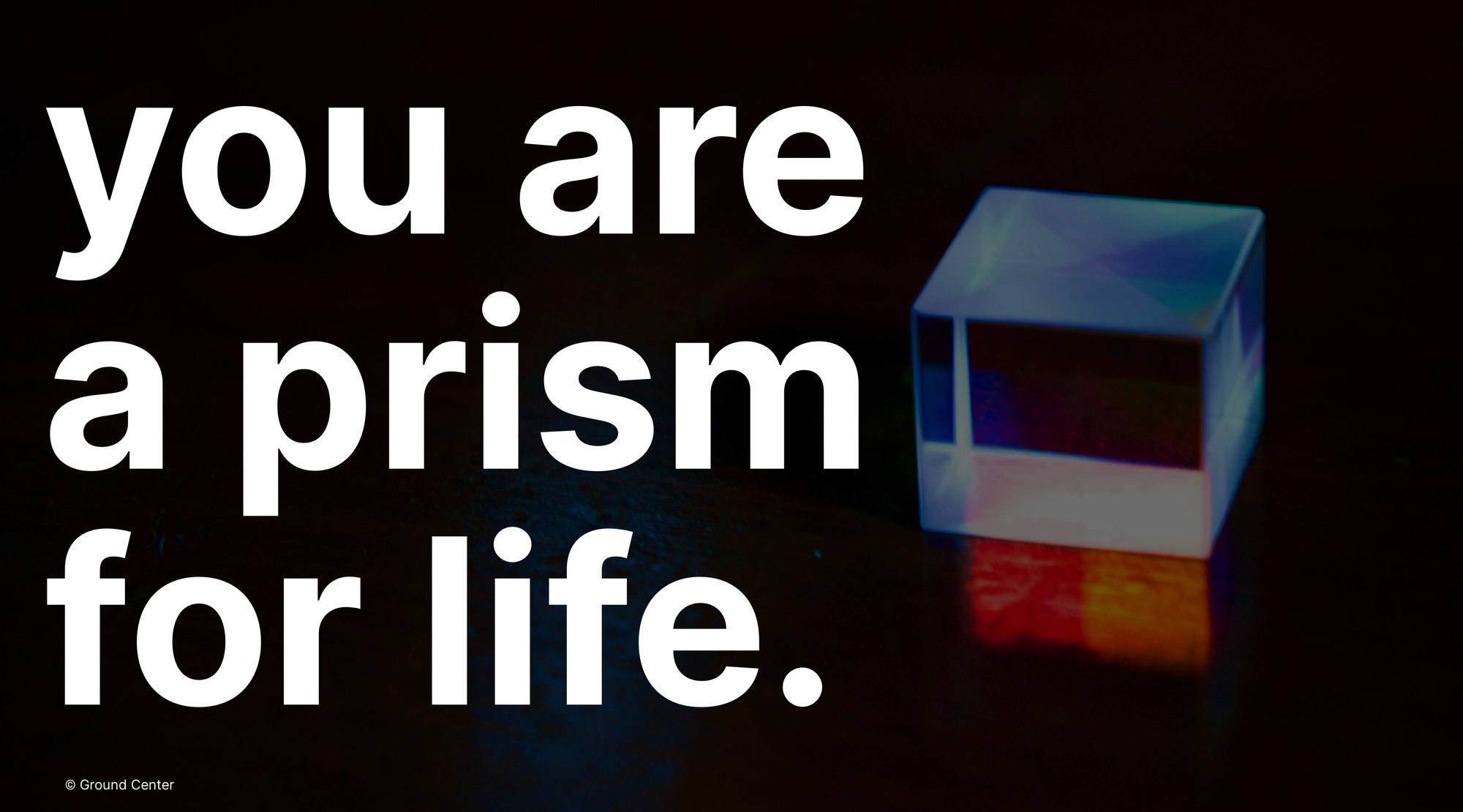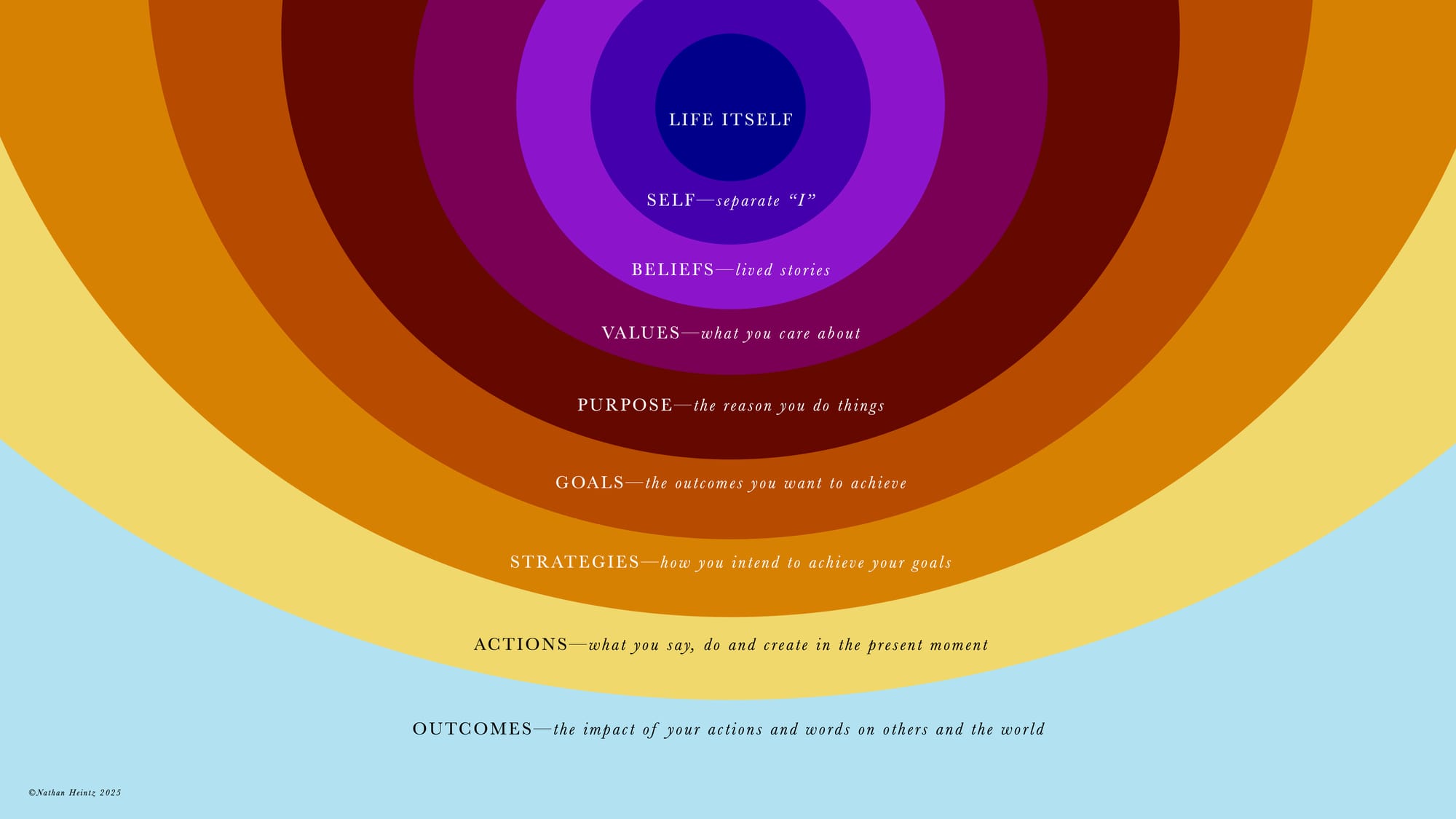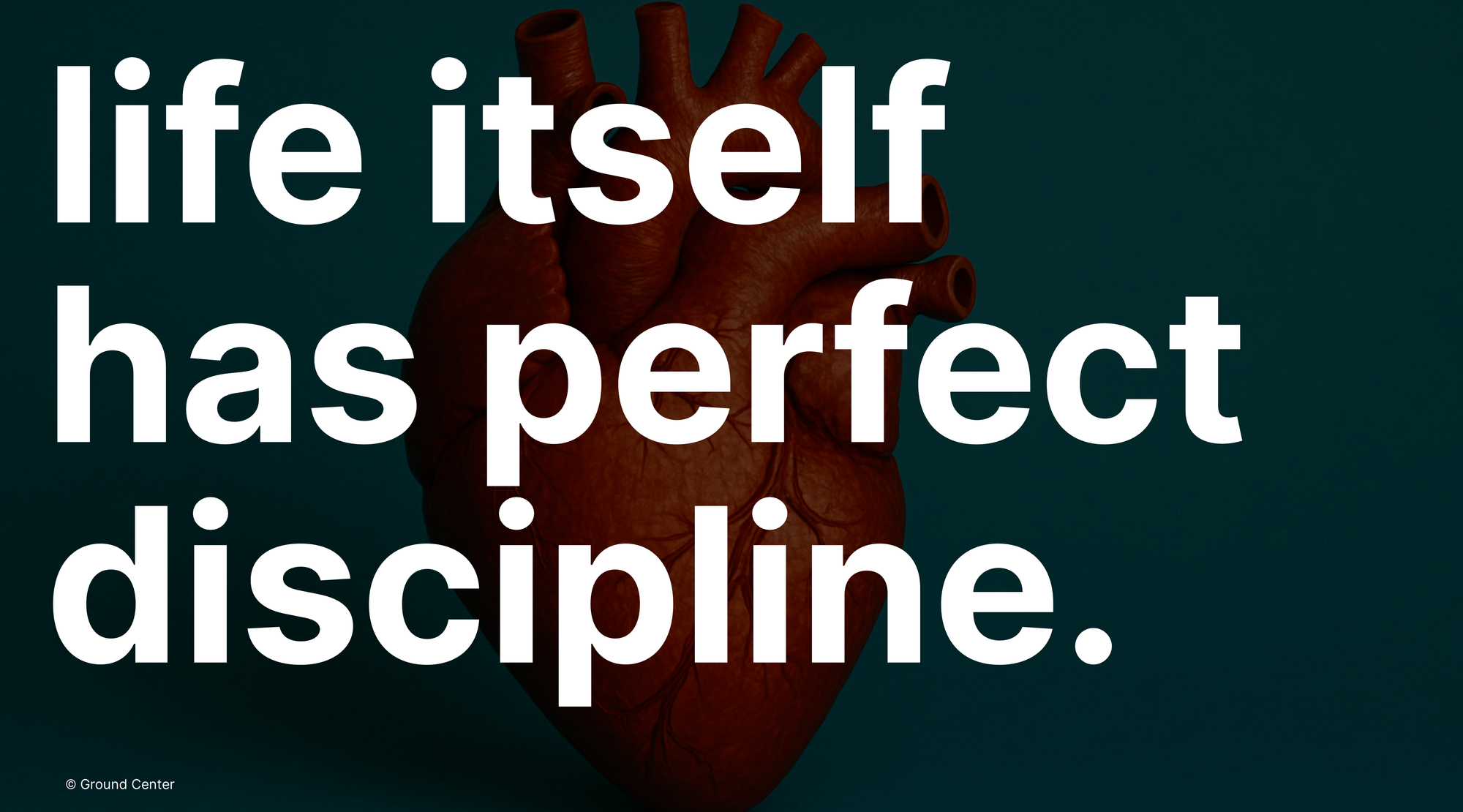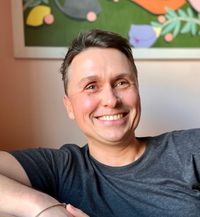For years I've been fascinated by our human capacity for self-deception—how we can genuinely intend one thing while unconsciously doing another. Despite being fundamentally pro-social creatures who want to live cooperative and meaningful lives, we're still plagued by unintended consequences and cycles of conflict.
Why is it so difficult to predict the outcomes of our actions? Why is there such a stubborn gap between intention and impact? I believe that this in part stems from the fundamental paradox of human agency: you're at once an agent of willpower and its subject. While it's true that you are "doing life", life is also "doing you." Your life—your very ability to act—is the result of a kind of "larger will" that we're all a part of. We have no escape from it. Willpower is what you're made of. Don't believe me? Try not taking any action whatsoever. Try sitting perfectly still and silent, free from all activity except "just sitting". Zen people call this "shikantaza", and it requires an immense amount of effort to sustain, because it involves harnessing and directing the powerful flow of your innate life activity into stillness.
It is this innate life activity that's at the heart of our experience of reality: it powers our ability to live, perceive, and act in the world.
And so like the fish that doesn't know water, willpower is the "air we breathe." It's so organic, so fundamental and so visceral that it becomes invisible. We don't even notice that it's happening. And even looking at it is paradoxical. Looking itself requires the will. It can't be "pinned down" by thinking about it, or conceptualizing it. It's just the raw energetic force that's there to be lived and experienced directly.
Willpower is what you're made of.
A Nested Prism
For a clearer understanding we can liken this force to light shining through a prism. In this metaphor, we're the prism, refracting and shaping the light of willpower as it shines through us. And so our individual sense of self with all of its complexity, directs willpower into the world, determining the actions we take and the outcomes we create. We're not in control of the process, but we have agency to shape and direct it, and we're responsible for the outcomes. And that agency is a function of the "nestedness" of our selves in the world, our nestedness in the force of willpower itself.

By looking a bit more closely at the self—the prism nested in the will—we can see that it is the quality of our consciousness that shapes our will and its outcomes. The "prism" of the self has many layers, and the "light" of the will is distorted, refracted and manipulated as it shines through us.
I created a diagram to illustrate this process. I've been calling it a "taxonomy of human will" but honestly I think it could use a better name. Feel free to reach out if you have a better idea.

In this way, our beliefs about ourselves and the world shape what we see is possible, and our values direct us to focus on what matters most to us. This in turn shapes our sense of purpose and direction in the world, the goals or intended outcomes we pursue, and the strategies and actions we think will be most effective.
It might be helpful to pause here because like all frameworks, this model is a simplification of a complex process, and there are some important caveats.
Unconscious Strategies
First of all, there are conscious and unconscious aspects to each of these elements. For example, we may have beliefs that are explicit and conscious, that we admit to and speak aloud. But we may also have beliefs that are hidden even from ourselves, that shape our values and goals and distort our actions and the outcomes we achieve. These unconscious distortions, our best efforts notwithstanding, can come in the form of self-sabotage, risk aversion, bad decision-making, addictions, you can take your pick. The road to hell, as they say, is paved with good intentions.
So it's not enough to "write out your purpose statement" and call it a good day's work. In fact purpose statements, like any tool, can be misused, leveraged for self-deception. Human beings have evolved to be masters of deception. We're so good at deception that we deceive ourselves. So as we set out to create more agency in regards to our actions in the world, as we seek to have a more positive impact in our relationships and lives, we have to read between the lines. Gaining agency in regards to our will requires developing skillful means. We have to try and "see how the prism works", and this means self-inquiry and self-knowledge.
Learning how to deepen our self-awareness is itself like "cleaning the prism" and can allow our lives to flow in a direction that gets naturally easier and more effective.
The Shadow Side of the Prism
The prism of the self doesn't just refract light—it also casts shadows. These shadows represent the unconscious aspects of our will, forces that operate beneath our awareness yet profoundly shape our experience.
Consider how these unconscious forces manifest: We hold beliefs about ourselves and the world that we've never examined—assumptions about our capabilities, about what's possible, about the nature of other people. These beliefs become self-fulfilling prophecies, creating the very reality they describe. We develop strategies that seem to protect us but actually sabotage our deepest intentions—overthinking instead of acting, creating perfectionist standards that justify delay, manufacturing obstacles that keep us insulated from what we most want to create. And we fall into habitual patterns of action—ways of moving, speaking, and being that operate automatically, shaping our outcomes without our conscious participation.
What's fascinating is that these unconscious forces aren't weak or undisciplined. Quite the opposite. Consider addiction: it demonstrates willpower so strong, so perfectly disciplined, that it can override our conscious intentions entirely. The unconscious aspects of our will can be extraordinarily powerful—they're just not visible to us.

The Discipline of Life Itself
This points to something profound about the nature of will itself. Life displays perfect discipline. Your heart beats without your conscious effort. The planets maintain their orbits with mathematical precision, yet their exact paths remain unpredictable—that decimal place extends infinitely. The universe appears to be both completely at ease and prolific to the point of absurdity, creating and sustaining an incomprehensible abundance of life.
As expressions of this larger creative force, when we align with what's most authentic in us—when our individual will resonates with this deeper current—motivation and discipline become as natural as breathing. The question becomes: what happens when we make the unconscious aspects of our will visible? When we bring awareness to the beliefs, strategies, and patterns that have been operating in the shadows?
Nested in Systems
To complicate matters, we're not just nested in a single living will—we're nested in complex living systems. We exist within webs of relationships, embedded in economic, social, political, and ecological structures that profoundly shape the circumstances we encounter. We're subject to forces of extraction and social violence, as beneficiaries, victims, or both. These systemic influences are often as invisible to us as our unconscious beliefs, yet they constrain and enable our agency in fundamental ways.
We're both completely independent and completely interdependent. Willpower, it turns out, is shared. Sometimes reclaiming individual agency requires building connections across systems. Sometimes the most viable step is simply asking for help—though the difficult truth is that not everyone has someone willing to help, and not everyone is capable of receiving it.
This suggests that understanding our will isn't about cultivating rugged individualism or optimizing personal performance. Sometimes the most authentic expression of our will involves collaborating to distribute resources more equitably, or working to dismantle the unjust systems we find ourselves embedded in. Just because there's a will and a way doesn't mean the ends justify the means.
We're both completely independent and completely interdependent.
Stewardship of the Will
The real invitation then isn't to more effectively control the will, but to develop the art of seeing and stewarding it more clearly, in relationship. In relationship to ourselves, one another and to the results of our actions in the world. To notice where our unconscious beliefs create the very limitations we think we're fighting. To observe how our protective strategies might be keeping us from what we most deeply want. To become curious about the habits and patterns that shape our daily experience.
This seeing itself creates space—space between our reactive patterns and our responses, space between our conditioned beliefs and our direct experience of what's possible. In that space, something else can emerge. Not the forced discipline of trying harder, but the natural discipline that arises when we're aligned with our deepest values and drives.
The taxonomy of human will, then, isn't a system to hold on to but a lens for inquiry. A way of asking: What aspects of my will am I not seeing? What emerges when I stop fighting against myself? And perhaps most importantly: How might my individual agency serve something larger than my personal agenda?
The fish, after all, doesn't need to understand water to swim.







